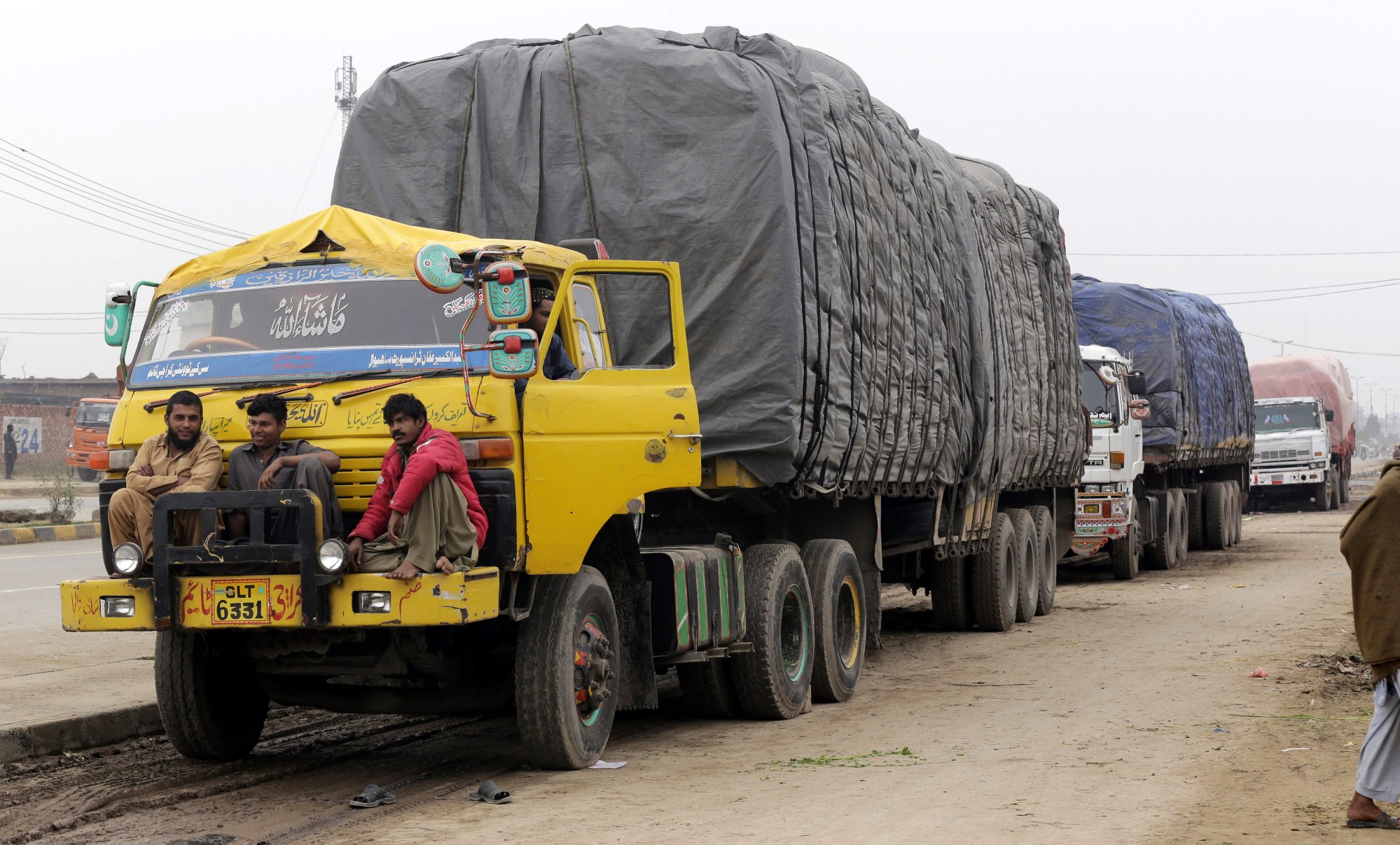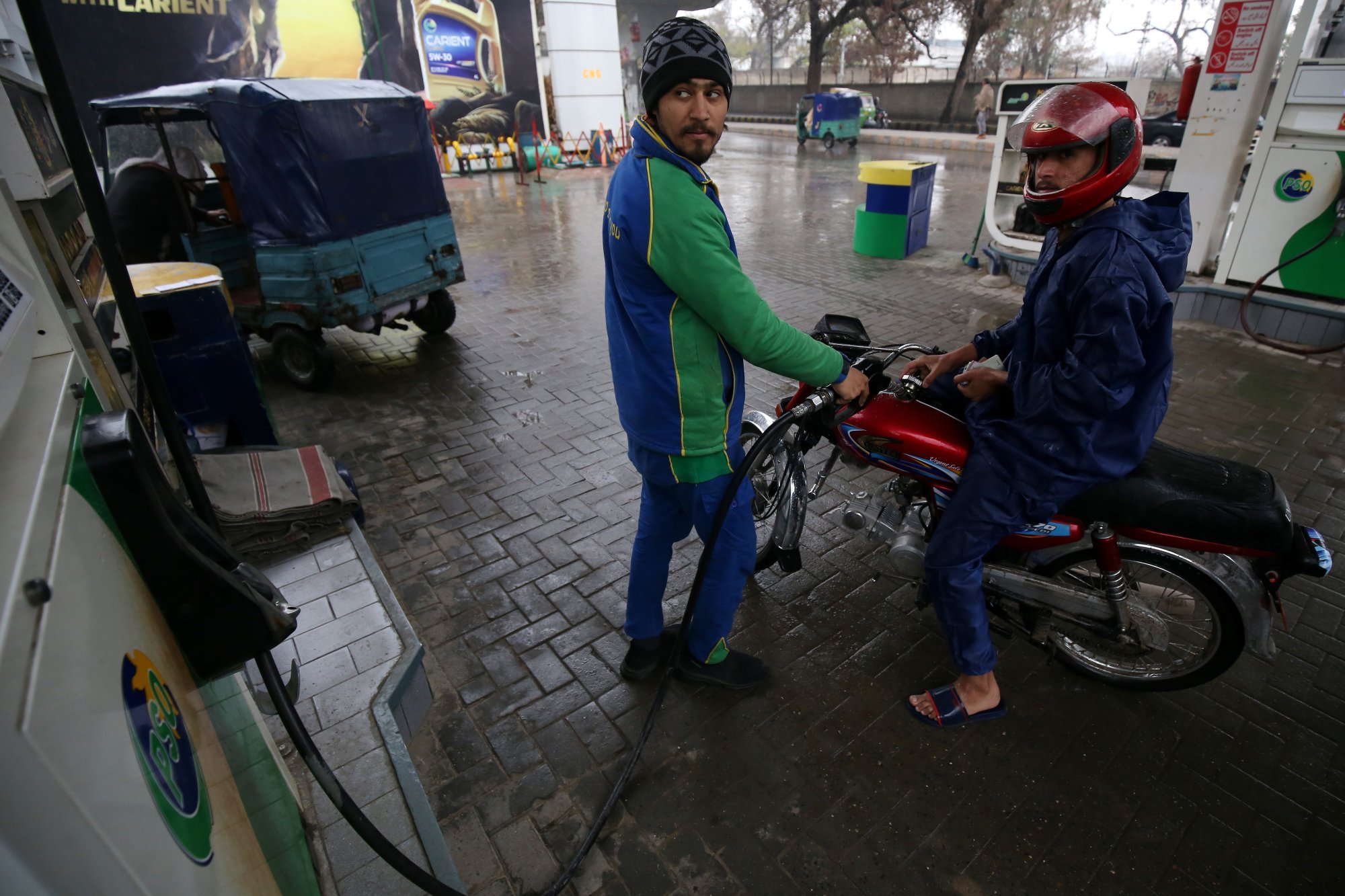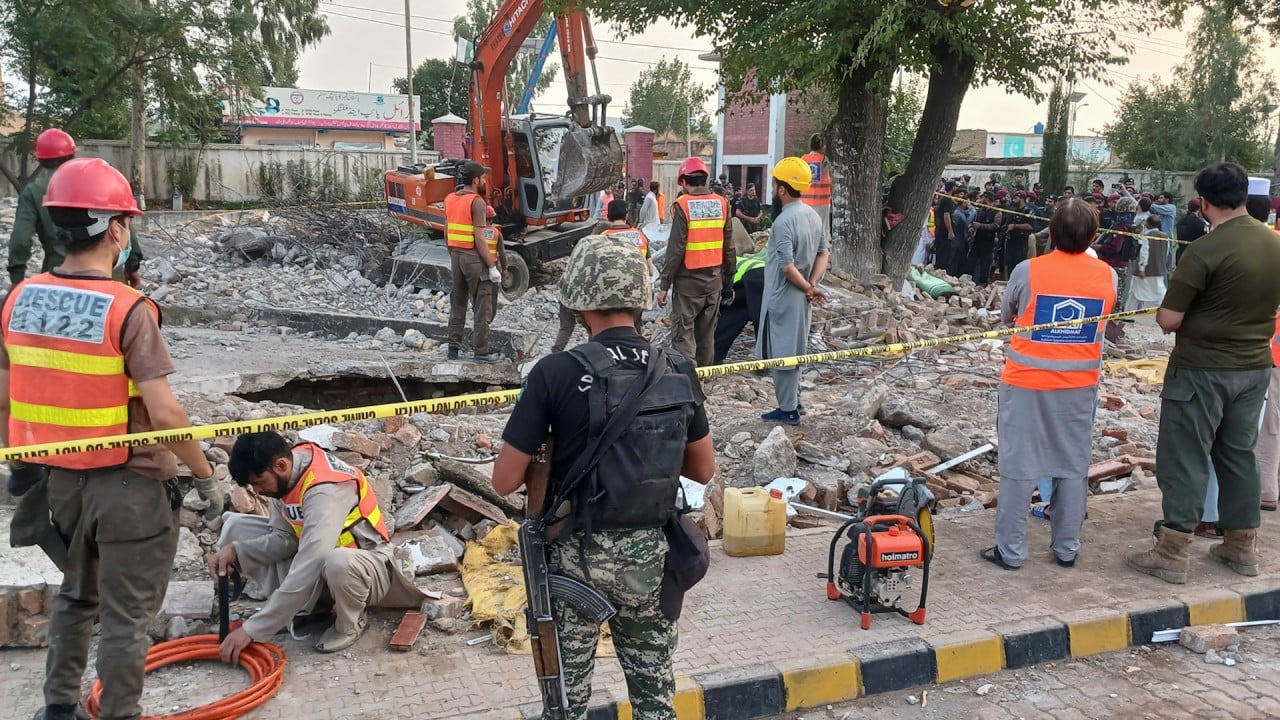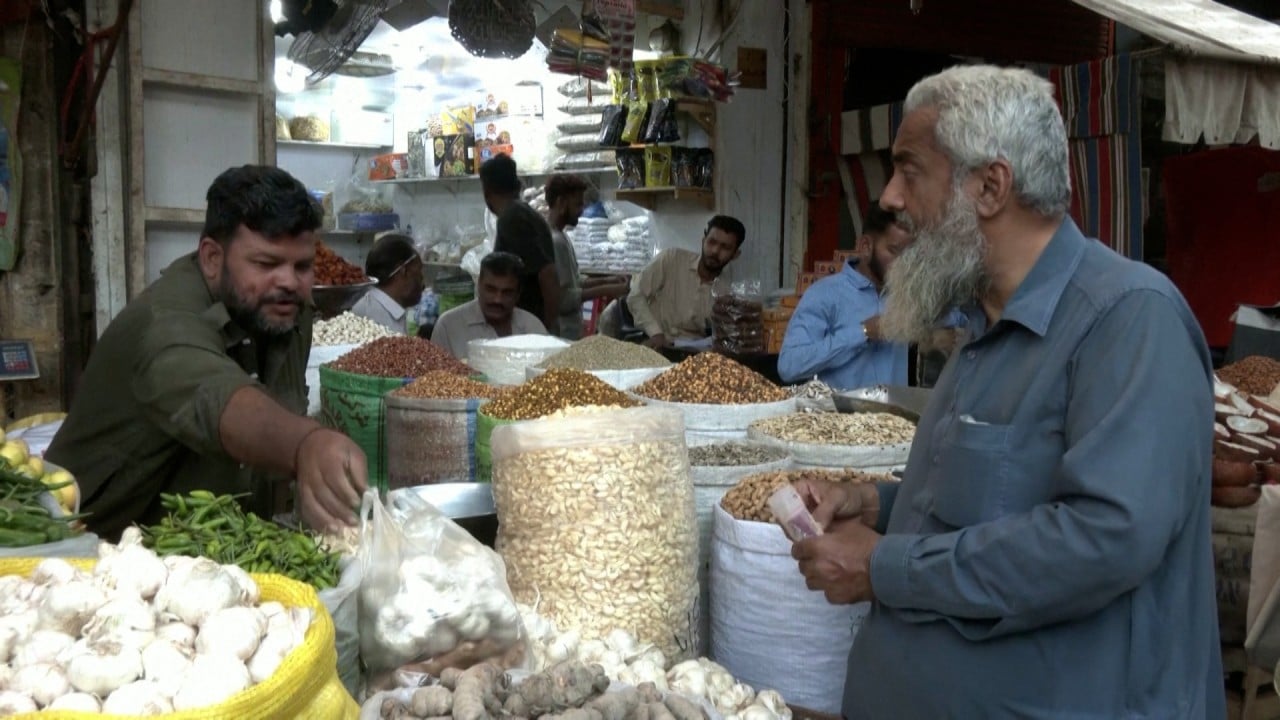[ad_1]
The former diplomat pressured: “Pakistan’s economy and, particularly, its textile and pharmaceutical sectors, stand to gain from trade with India given their dependence on raw materials from India.”
He mentioned inner session on the problem was required from Pakistan, coupled with some quiet diplomacy with India in order that the proposal could be on the desk when a brand new authorities took workplace in Delhi in June.
On Thursday, nonetheless, Pakistan’s overseas workplace spokeswoman Mumtaz Zahra Baloch denied the opportunity of resuming commerce with India. “Pakistan-India trade relations have been non-existent since 2019 … There is no change in Pakistan’s position on it,” Baloch mentioned.
Some geopolitical analysts in Pakistan have additionally criticised Dar’s feedback.
“Foreign Minister Ishaq Dar spoke about trade with India – continuing a habit among Pakistani elites of seeking a hand of friendship that simply does not exist. This is a matter of concern – but hardly new,” mentioned Mosharraf Zaidi, columnist and public coverage professional.

Dar, who helmed varied financial ministries in Pakistan and served as finance minister beneath Shebaz Sharif’s authorities from 2022 to 2023, has carefully monitored the worsening financial circumstances in his nation.
Trade with India has been a serious concern for Pakistan’s enterprise neighborhood, which feels burdened by the need of importing the identical objects by way of Dubai or different international locations. Although Pakistan had beforehand thought-about importing sugar and cotton from India, the concept was rejected by the Khan cupboard.
For Dar, commerce with India is already occurring however via a a lot costlier route, imposing greater prices on Pakistan. Direct commerce between the 2 nations is seen as a logical step in the direction of fostering higher financial progress.
Its gross home product is 10 occasions smaller than India. In the Seventies, Pakistan’s per capita revenue was about twice India’s; right this moment India’s is 50 per cent greater.

‘Gloomy new normal’?
Bisaria mentioned commerce shouldn’t be considered in isolation, somewhat, it might be a part of a basket of low-hanging fruit throughout the normalisation of bilateral relations. He pressured the need of a political sign previous discussions on commerce, connectivity, and fostering people-to-people hyperlinks.
A pure first step, Bisaria urged, could be for Pakistan to suggest an alternate of excessive commissioners upon the inauguration of the brand new Indian authorities. “India would also expect some strong reassurance on curbing terrorism emanating from territory controlled by Pakistan.”
Bisaria famous that senior diplomats may strengthen the capability of their missions and search for artistic concepts for rapprochement within the second half of the yr.
He nonetheless warned: “There is a reason for cautious optimism: a ceasefire has held for four years at the border, we have gone without spectacular acts of terrorism for five years after the Pulwama attack in 2019, and two new governments will be in place in both countries, willing to look at fresh ideas to address the relationship.”
On February 14, 2019, a suicide bombing within the Pulwama district of the Jammu and Kashmir area killed 40 Indian safety personnel. India blamed Pakistan for the assault, which severely affected bilateral ties.
In the previous, Pakistan signed agreements such because the South Asian Association for Regional Cooperation (SAARC) to foster preferential commerce with India. Yet, the nation has proven tepid curiosity within the course of, with its leaders and overseas workplace sustaining a steadfast stance: demanding India deal with the contentious Kashmir situation earlier than contemplating any normalisation of financial relations.
The present chairman of the Pakistan People’s Party and former overseas minister throughout 2022-23, Bilawal Bhutto Zardari, has adopted a hardline stance in opposition to India lately, presenting a problem for the brand new authorities concerning the potential commerce resumption with India.
India, maybe influenced by the approaching elections, has remained mum on the matter. However, geopolitical analysts speculate that India might be reluctant to interact in commerce with Pakistan with out important steps from Pakistan to deal with terrorism in Kashmir. They recommend that rapid progress between Delhi and Islamabad is “unlikely”.
Can Shebaz Sharif thaw Pakistan-India ties as Kashmir remains sticking point?
Can Shebaz Sharif thaw Pakistan-India ties as Kashmir remains sticking point?
Afaq Hussain, co-founder and director on the Bureau of Research on Industry and Economic Fundamentals, instructed This Week in Asia the choice was throughout the framework of Pakistan’s historic proclivity in the direction of financial ties with India beneath earlier governments.
Citing a 2018 World Bank report projecting annual bilateral commerce potential at US$37 billion, Hussain mentioned this indicated “untapped opportunities awaiting exploration”.
Hussain highlighted, specifically, the affect of resumed commerce on border economies. “Trade between India and Pakistan holds significant importance for border areas, which often bear the brunt of economic disruptions,” he mentioned.
Give the difficult political panorama in India, significantly with impending elections, Hussain sees restricted scope for rapid constructive responses or initiatives from India’s facet.
However, Hussain reiterated the importance of commerce as a diplomatic software for fostering bilateral engagement, suggesting it may function a precursor to broader discussions on political points. “Trade provides a softer approach to reigniting diplomatic conversations between India and Pakistan,” he acknowledged.
Michael Kugelman, director of the South Asia Institute on the Wilson Center, expressed scepticism concerning the prospects of improved commerce ties any time quickly.
“There is a past history of the two sides cooperating on trade even when relations are bad,” he defined, “but in more recent years they’ve settled into a gloomy new normal where political considerations hold the two back.”
Kugelman famous that India, being the bigger financial system, had “little economic incentive to trade with Pakistan” because it didn’t want extra entry to low cost imports.
“I don’t expect India to be more receptive to trade after its elections, as the ruling party will likely return, and it will maintain its consistent position of not engaging until Pakistan acts on India’s concerns about terrorism, even though Pakistan claims these concerns are unfounded,” Kugelman added.
[adinserter block=”4″]
[ad_2]
Source link

